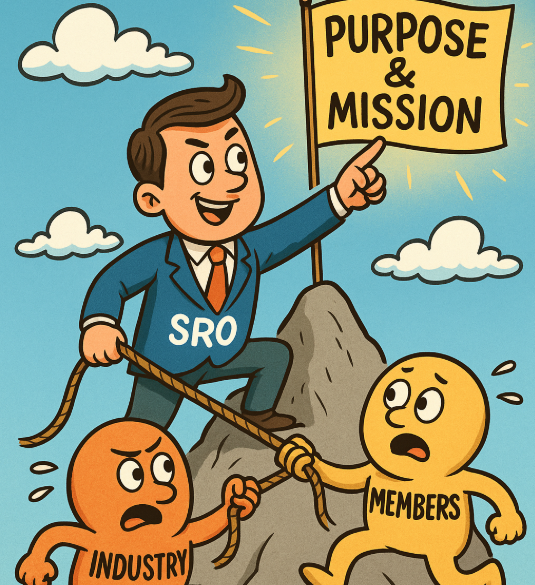1.1.2 Self-regulatory Organizations (SROs)

Purpose and mission of an SRO
Definition:
A Self-Regulatory Organization (SRO) is a non-governmental organization that oversees and enforces compliance with rules and regulations within a specific industry, such as financial markets, without direct government intervention. SROs are typically created by the industry itself to ensure fair practices and maintain public trust.
Purpose of an SRO:
The primary purpose of an SRO is to promote fair trading, ensure market integrity, and protect investors by creating rules and monitoring compliance within its industry.
Mission of an SRO:
An SRO's mission is to:
• Set and enforce industry standards.
• Monitor member activities to ensure compliance with these standards.
• Provide a mechanism for dispute resolution.
• Take disciplinary action against members that violate rules.
Real-World Example:
The Financial Industry Regulatory Authority (FINRA) is a prominent SRO in the United States. It regulates brokerage firms and exchange markets.
For example, if a brokerage firm engages in insider trading (using non-public information to make trades), FINRA can investigate the firm, impose fines, and suspend or expel the responsible individuals. FINRA also works to ensure that firms act in the best interests of their clients.